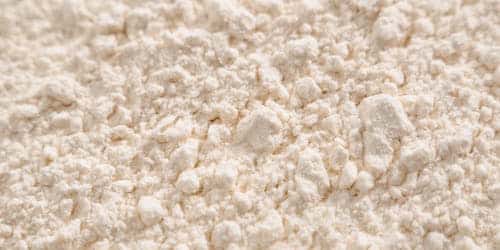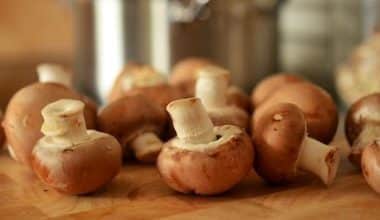A versatile ingredient, corn flour is used to make several popular Nigerian dishes, including pap, akamu, ogi, and donkwa. Entrepreneurs in Nigeria have a plethora of options to launch successful production companies thanks to the rising demand for corn flour. This extensive manual offers advice on how to launch and manage a profitable maize flour milling business.
If you think you can also venture into flour processing business, here is an article for you.
What is Corn Flour?
Corn flour is a kind of flour manufactured from ground corn or maize, sometimes referred to as cornmeal flour. Zea mays is the scientific name for it. Corn flour is frequently used in a variety of recipes, including porridge, tortillas, and bread.
Industry Overview
Millions of Nigerian smallholder farmers grow corn, which is a key crop in the nation. Nigeria produces about 12.5 million metric tonnes of corn a year, according to USDA estimates. While a sizable amount of this maize is ground into corn flour and corn starch, the majority of it is used to feed animals.
Nigeria’s maize flour market is growing quickly due to changes in consumer preferences, rising income levels, and population expansion. Weaning food and a popular morning cereal, pap, is made using corn flour. It is also used to produce alcoholic beverages and make delicacies like donkwa. Industrial uses for corn starch include paper, textiles, and medications.
The majority of corn flour is currently produced in tiny mills strewn throughout urban and rural areas. With automated processes and branded goods, a few major processors have surfaced to seize market share in corn flour. This suggests that there are excellent opportunities for newcomers to set up medium- to large-scale mills and create successful brands of maize flour.
Benefits of The Corn Flour Business
Among the advantages of operating a maize flour company in Nigeria are the following:
#1. Job creation
The production and supply of corn flour lowers unemployment rates by generating jobs in both rural and urban regions.
#2. Increased income
Farmers, processors, wholesalers, and retailers may profit from this business endeavor.
#3. The local economy is boosted
The manufacturing and distribution of corn flour has the potential to strengthen regional economies and the US economy.
#4. Obtaining credit
Entrepreneurs can obtain loan facilities from financial institutions with a profitable maize flour production and supply firm, which can further accelerate business growth.
#5. Higher revenue from exports
Nigeria is a significant producer of corn flour, which it can sell to other nations in order to generate foreign cash.
#6. Improved food security
The production and supply of corn flour has the potential to enhance food security through the augmentation of nutrient-dense food options in nearby marketplaces.
#7. Growth of associated sectors
Related sectors like packaging, shipping, and storage can grow as a result of the corn flour industry.
Steps to Start a Corn Flour Milling Business in Nigeria
Establishing a corn flour milling enterprise necessitates a methodical strategy encompassing essential phases:
#1. Conduct feasibility studies.
Conduct comprehensive market research to determine the possible market share and demand for your intended business, as well as the opportunities and hazards in your target regions. Examine your alternatives for obtaining machinery and raw corn as well. This gives you information to include in your business plan.
#2. Choose a Business Location
Establish your corn flour mill ideally in areas that produce a lot of corn, such as the states of Bauchi, Kaduna, Niger, Taraba, and Benue. Being close to raw supplies is essential for cutting expenses. Make sure there is adequate labor availability and road access.
#3. Establish the level of production.
The target market and your starting money will determine how much you can produce. By milling 500 kg to 1 tonne per day, start small and work your way up. 5–10 tonnes of corn per day can be processed by large mills. Begin modestly and expand gradually.
#4. Get licenses to operate
Obtain the necessary licenses and certifications from NAFDAC, SON, and state regulatory agencies, then register your company name with CAC. Your company is now totally compliant as a result.
#5. Purchase machinery and equipment.
Grain cleaners, attrition mills and grinders, hammer mills, screening and sealing devices, and diesel generator sets are some of the essential pieces of equipment you’ll require. Purchase high-quality equipment for maximum efficiency. Hardy mills are available from imported brands like FAMSUN. As an alternative, purchase prefabricated machinery from reliable regional producers.
#6. Set up a milling facility.
Hire a large enough area in a commercial or industrial setting. As you install your machinery and equipment, pay attention to safety precautions. source of the essential utilities for activities, such as water and power.
#7. Hire personnel
Employ competent machine technicians, loaders, cleaners, drivers, security personnel, and mill managers and operators. Teach employees how to use the milling equipment and procedures. To keep employees, provide incentives and competitive pay.
#8. Supply of Raw Corn Source
To ensure a consistent supply of corn, build ties with nearby corn growers or farmer associations. Sign contracts that expressly state the costs and delivery schedules. Give farmers assistance and training to guarantee high-quality corn.
#9. Present Your Product and Brand It
Invest in eye-catching corn flour packaging that features your distinct company name and logo. Labeling information, manufacturing and expiration dates, and a NAFDAC registration number have to be on bags. Confidence among customers is increased by attractive packaging.
#10. Advertise and provide
Create a distribution network to reach both rural and urban customers with your packaged corn flour. Make use of retail establishments and wholesale distributors. Use sales vans, social media marketing, and local radio to spread the word. Take part in culinary demonstrations to raise awareness of your business.
Essential Tips for Running a Profitable Corn Flour Milling Business
The following are essential components of a profitable maize flour production business in Nigeria:
#1. Adopt efficient milling methods.
Use cutting-edge milling equipment and technology to get greater yields with fewer breakages and less waste. For optimum performance, machines require routine maintenance.
#2. Ensure high quality standards.
To consistently create fine, uniform flour free of contaminants, continuously monitor the milling process. Utilize sieves to carry out quality tests. Steer clear of pollution.
#3. Keep up positive ties with suppliers.
Establish explicit supply agreements and cultivate confidence with corn producers. Provide training, resources, and funding to suppliers in order to maintain a high-quality raw material supply.
#4. Provide competitive prices.
Establish reasonable charges that offer clients value while generating healthy earnings for you. Promote your products to increase sales. Price adjustments should be made in response to rivals’ prices, demand cycles, and manufacturing costs.
#5. Give customer service first priority.
Respond quickly to consumer complaints. To constantly refining your goods and services, get feedback. Loyalty is increased by providing excellent customer service.
#6. Adopt sound money management techniques.
Exercise careful control over costs, cash flows, and working capital. Maintain precise documentation. To be more efficient, use digital technologies. Reinvest earnings to expand the company.
#7. Build your brand.
Establishing a robust brand identity via collaborations, marketing campaigns, and superior merchandise will set your corn flour apart from other brands.
Challenges of the Corn Flour Business in Nigeria
While operating this corn flour company, you may need to steer clear of the following difficulties:
#1. The state of the weather
A decrease in maize output and quality can be caused by unfavorable weather patterns like droughts or floods.
#2. Diseases and Pests
Diseases and pest infestation can harm crops, lowering corn production and quality.
#3. Exorbitant Input Costs
Fertilizers, insecticides, and seeds can be expensive inputs, which lowers profitability.
#4. Insufficient Storage Spaces
Inadequate storage facilities can result in decreased profitability, spoilage, and quality loss.
#5. Inability to Get Finance
Many small-scale farmers find it difficult to obtain financing when they wish to grow their businesses.
#6. Restricted Access to the Market
Reduced profitability and price volatility might result from restricted access to markets.
What is the Demand for Corn Flour in Nigeria?
In Nigeria, the estimated annual national demand for corn flour is approximately 800,000 tons, whereas the anticipated annual national supply is 350,000 tons.
How Profitable is Corn Farming in Nigeria?
You can get returns on investment of 50% or more if done correctly. Three tons per acre is the desired yield. A ton of maize crop sells for approximately NGN60,000 on average. Multiplying NGN60,000 by 3 is NGN180,000. In two months, your profit can be computed as follows: 180,000 – 20,000 = NGN 160000.
Is Flour Business Profitable in Nigeria?
It is, indeed. One of the byproducts of maize is corn flour, and investing in it may be very profitable. After sorghum and millet, maize is the third most important cereal cultivated in Nigeria. When it comes to global byproducts, it is ranked below rice and wheat.
Why is Cornflour So Expensive?
Due to limited feedstock supply, corn starch prices will continue to rise globally. Due to the high cost and limited supply of corn feedstock, the corn starch market in North America and Europe is still showing an upward price trajectory.
What is the Largest Flour Mill in Nigeria?
With a daily installed capacity of about 12,000 metric tons, Flour Mills of Nigeria is now the biggest flour milling firm in Nigeria.
Is Corn Flour Healthier than Wheat flour?
Conversely, since maize flour doesn’t contain gluten, anyone can eat it. In terms of nutrition, maize flour has more fat. In terms of calories, protein, fiber, vitamins, and minerals, wheat flour is superior to corn flour. Compared to maize flour, whole wheat flour is healthier.
Is Corn Flour Good for Health?
When eaten in moderation, corn flour can be a component of a nutritious diet. Carbohydrates, vital vitamins, minerals, and dietary fiber provide it energy. It’s crucial to remember that maize flour contains a lot of carbohydrates, thus eating it in moderation as part of a balanced diet is advised.
Is Corn Flour High in Sugar?
Cornstarch, another name for cornflour, is a high-carbohydrate food. It is high in starch and contains simple sugar, which is bad for diabetics since it can quickly raise blood sugar levels.
What are the Disadvantages of Corn Flour?
It may cause a blood sugar rise. Corn flour has a high glycemic index (GI) and is loaded with carbohydrates. It tends to hold back the bloodstream’s absorption of sugar and has less fiber. Therefore, it is wise to stay away from corn flour.
Can I Eat CornFlour if I Have High Cholesterol?
Fiber lowers LDL cholesterol, yet corn flour does not include it. Corn flour consumption can increase low-density lipoprotein (LDL), a harmful cholesterol. Atherosclerosis may result from the body’s oxidation of LDL cholesterol.
Which Flour is Good for Diabetes?
The best flours for diabetes are thought to be buckwheat, amaranth, and ragi. They effectively maintain appropriate blood sugar levels and are minimal in carbs. Consider purchasing almond flour, oat flour, soy flour, barley flour, and chickpea flour if you’re looking for healthier flour options for diabetics.
Which is Healthier Corn Flour or Rice Flour?
Compared to corn flour, rice flour usually has less fat and more carbs. Additionally, it has important minerals like potassium and magnesium. Conversely, corn flour is a more satisfying option due to its increased dietary fiber and protein content. It’s also a strong source of iron and vitamin B6.
In summary
The developing maize flour market in Nigeria offers business owners enormous prospects. Corn flour milling is an extremely profitable enterprise, provided that it is planned out properly, run effectively, and brands effectively. Your made-in-Nigeria corn flour brand can achieve substantial market share and profit margins by implementing the advice provided in this article.
- Cassava Flour Business: Detailed Guide 2023
- CAR ACCIDENT ATTORNEY: How a Lawyer Can Help With Your Accident Claim
- WHITE BREAD BRANDS: The Best Picks for 2023 & Free Tips
- FLOUR PROCESSING BUSINESS: Cost breakdown & How to start tips (+ Detailed Guide)
- Alternative Investments: Beginners Guide to the Investment Options






